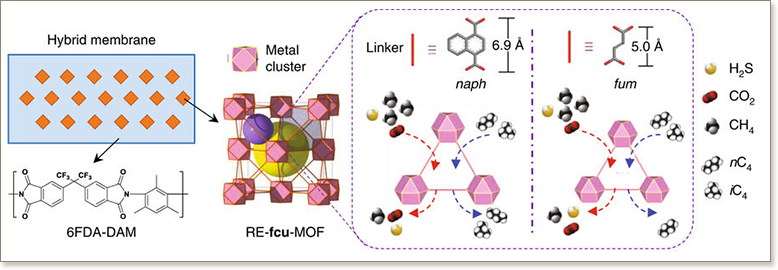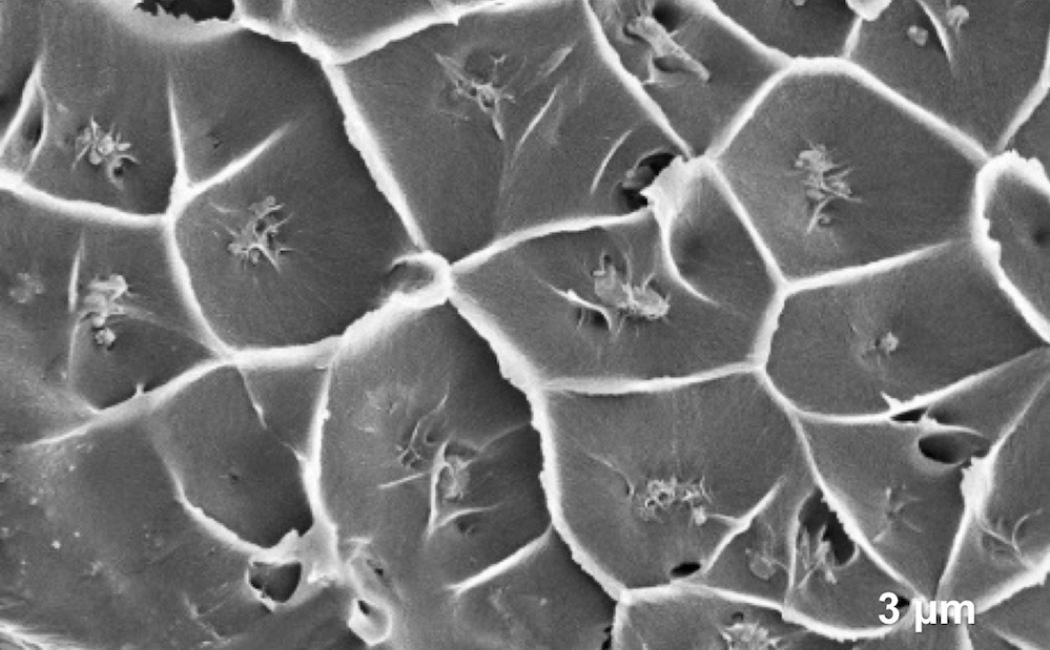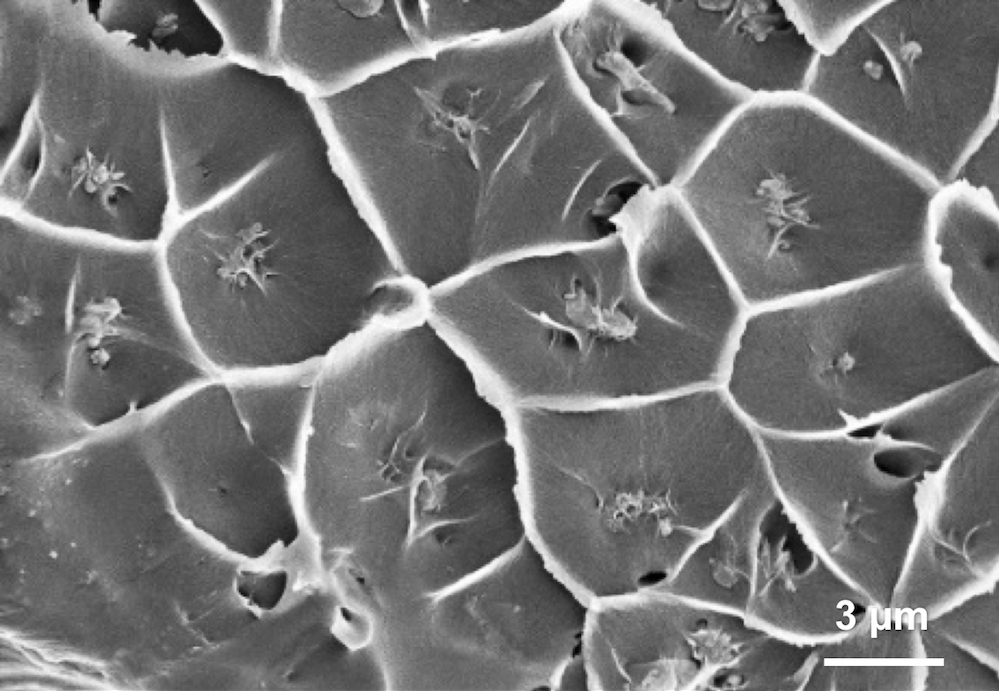Prof. Mohamed Eddaoudi and his team members
Valeriya Chernikova, Dr.
Youssef Belmabkhout, Dr.
Osama Shekhah at the
FMD3research group in AMPM Center (KAUST) have collaborated with Prof. William J. Koros and his team members of the School of Chemical & Biomolecular Engineering at Georgia Institute of Technology, Atlanta (USA). The result of this research has been recently published in the prestigious scientific journal, Nature Materials.
A Successful Mix
Prof. Eddaoudi is a pioneer in the design and synthesis of metal-organic frameworks (MOFs) and Prof. Koros is considered as the world authority in membrane science and engineering. Both groups put their respective expertise to work and effectively addressed the ongoing quest to integrate the MOF unique sieving/separation properties into processable membranes.

“In this work, we demonstrate for the first time the successful translation of the distinctive properties of MOFs, as selective adsorbents for H2S removal and as a molecular sieve of iso-paraffin from linear paraffins, into a hybrid membrane system” notes Dr. Youssef Belmabkhout, Senior Research Scientist at FMD
3 group. He adds: “The combination of a crystalline rare-earth MOF with underlying face-centered cubic topology (RE-fcu-MOF) and contracted triangular pore-aperture with the processability of a high-performance polyimide (6FDA-DAM) polymer afforded a distinct mixed matrix membrane showing outstanding separation and aging properties".
Dr. Osama Shekhah, Research Scientist at FMD
3 group explains: “The RE-fcu-MOF is a class of MOFs that possesses a pore structure with small, rigid triangular windows, which are the sole entrance to these pores. These regulated triangular windows are perfectly suited for molecularly sieving butane from isobutene and removing H2S and CO2 from natural gas".
This paper addresses many of the difficulties balancing permeability and selectivity that research groups face when trying to make high-performance MMM.
“The performance of polymers is governed by the permeability-selectivity trade-off. In other words, polymers owning high permeability, rate of gas transport through the membrane, suffer from low selectivity. Accordingly, a shift to a hybrid mixed-matrix system based on incorporating highly permeable molecular sieve MOF particles in a processable polymer matrix is a prospective way to bypass this “trade-off” limitation. In this study we described a unique polymer-MOF system with excellent interphase compatibility and matching transport properties, leading to the successful integration of the MOF properties.” explains Valeriya Chernikova, Senior Ph.D. student at FMD
3 group.
Hybrid Membranes for Industrial Applications
The interest in membranes is growing and they are being increasingly considered for large-scale processing in the petrochemical industry. This research means a further step in the challenge of designing membranes that replace traditional gas separation processes.
Dr. Youssef Belmabkhout says: "Membrane-based separations can offer an excellent energy efficient alternative to the traditional methods used so far, which are mainly based on cryogenic distillation that is highly energy intensive and very expensive".
"This study attests that the Mixed Matrix Membrane approach is a valuable and a powerful avenue for integrating the unique MOF properties in relatively processable hybrid membranes for key industrial applications. The future looks bright as we strongly believe that the MMM approach can be expanded to various MOFs and polymers with suitable characteristics for various energy-intensive separations", concludes Prof. Eddaoudi.
Selected Publications
- Mixed matrix formulations with MOF molecular sieving for key energy-intensive separations
G. Liu, V. Chernikova, Y. Liu, K. Zhang, Y. Belmabkhout, O. Shekhah, C. Zhang, S. Yi, M. E...
Nature Material, (2018)




 Membrane-based gas separations can improve energy efficiency and reduce the environmental impact. The latest work led by the AMPM Center Director, Prof. Mohamed Eddaoudi, and his collaborators unveils the successful fabrication and integration of two class of materials, namely MOFs and polymers, into a hybrid membrane system named “Mixed Matrix Membrane” (MMM) with distinctive properties. The presented MMM offers an exceptional performance for two of the most important gas separation processes: The removal of CO2 and H2S from natural gas and the separation of the butane isomers.
Membrane-based gas separations can improve energy efficiency and reduce the environmental impact. The latest work led by the AMPM Center Director, Prof. Mohamed Eddaoudi, and his collaborators unveils the successful fabrication and integration of two class of materials, namely MOFs and polymers, into a hybrid membrane system named “Mixed Matrix Membrane” (MMM) with distinctive properties. The presented MMM offers an exceptional performance for two of the most important gas separation processes: The removal of CO2 and H2S from natural gas and the separation of the butane isomers. 
